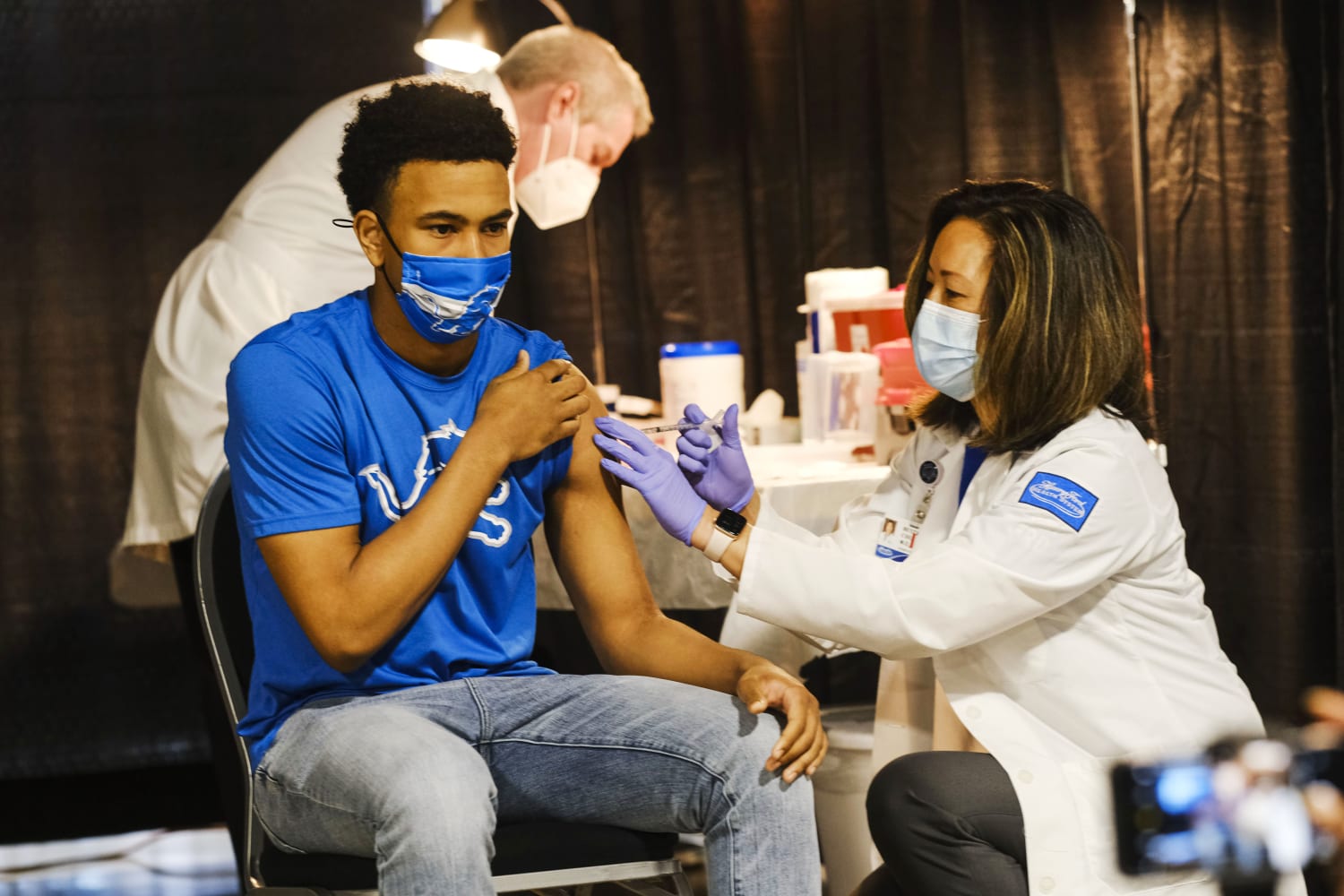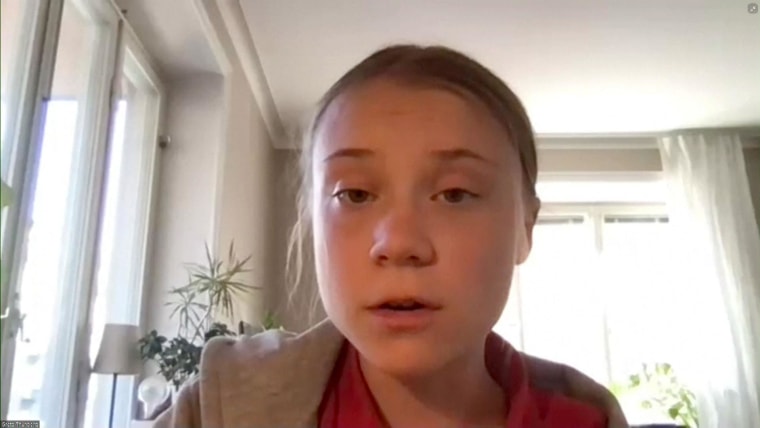Now that all states have expanded eligibility for Covid-19 vaccines to anyone ages 16 and up, older teenagers are lining up for the shots — often with the help of high schools.
Getting shots in the arms of 16- and 17-year-olds is “essential,” said Tifini Ray, the project manager for school health services at Nationwide Children’s Hospital in Columbus, Ohio.
Full coverage of the coronavirus outbreak
That’s partly because the number of pediatric Covid-19 cases is rising in the U.S. The American Academy of Pediatrics said about 88,500 new cases in children were reported last week — a 5 percent increase from previous weeks.
“Childhood cases really reflect what’s going on in the surrounding community,” said Dr. Sean O’Leary, a professor of pediatrics at the University of Colorado Anschutz Medical Campus and Children’s Hospital Colorado. Indeed, the seven-day average of new Covid-19 cases overall is up slightly from the previous week, according to the Centers for Disease Control and Prevention.
While it’s true that young people tend to have milder Covid-19 symptoms than older adults, children and teenagers can spread the coronavirus to older, more vulnerable groups. And they can become quite ill themselves and even die.
O’Leary, who is also vice chair of the American Academy of Pediatrics’ Committee on Infectious Diseases, said vaccinating children can help keep schools safer. “Although transmission in schools is low, it’s not zero,” he said.
Hawaii, Massachusetts, New Jersey, Oregon, Rhode Island and Vermont on Monday opened eligibility to everyone ages 16 and up — the final states to reach President Joe Biden’s goal of opening eligibility by April 19.
So far, just a small percentage of 16- and 17-year-olds has been able to get shots. Data from the CDC indicate that less than 1 percent of those older teens have been fully vaccinated.
It may be difficult for many parents — especially working parents — to find time to schedule vaccinations for their older teens and then leave work to take their children to both appointments. Only the vaccine from Pfizer-BioNTech has been authorized for use in people as young as 16. It is given in two doses, three weeks apart. (The shots from Moderna and Johnson & Johnson are authorized for adults 18 and older.)
That’s where communities are stepping in to help get the vaccines to kids where they spend the most time: in school. Nationwide Children’s has been hosting vaccination clinics in high schools in Franklin County, Ohio, which remains at the highest level of alert in the state for risk of Covid-19 exposure and spread.
Ray expects that her team at Nationwide Children’s will have given at least a first dose to nearly 7,000 teenagers in the Columbus area in the coming days.
“Our schools are still in session, mostly in person,” Ray said. “It’s much easier for us to reach them in mass numbers while we have them in one location.”
High schools elsewhere are also opening vaccination clinics for teens who qualify.
“We need to get them protected so that they’re not passing the disease to those who might be more vulnerable for the illness and its complications,” Dr. Tamara Sheffield, the medical director for Intermountain Healthcare’s Community Health and Prevention initiative in Salt Lake City, told NBC affiliate KSL.
At least two districts in the Salt Lake City area have opened vaccination clinics in schools. Other states are following suit. The Waterbury Public School District in Connecticut offered hundreds of appointments for 16- and 17-year-olds this week.
Download the NBC News app for full coverage of the coronavirus outbreak
One of them was Michael Albino. “It’s been very difficult to schedule one, so I’m just really glad I’m finally able to get it done and over with,” Albino, a high school junior, told NBC Connecticut.
Pfizer has asked the Food and Drug Administration for emergency use authorization of its vaccine in children ages 12 to 15. A decision could come in the next few weeks.
Source: | This article originally belongs to Nbcnews.com












